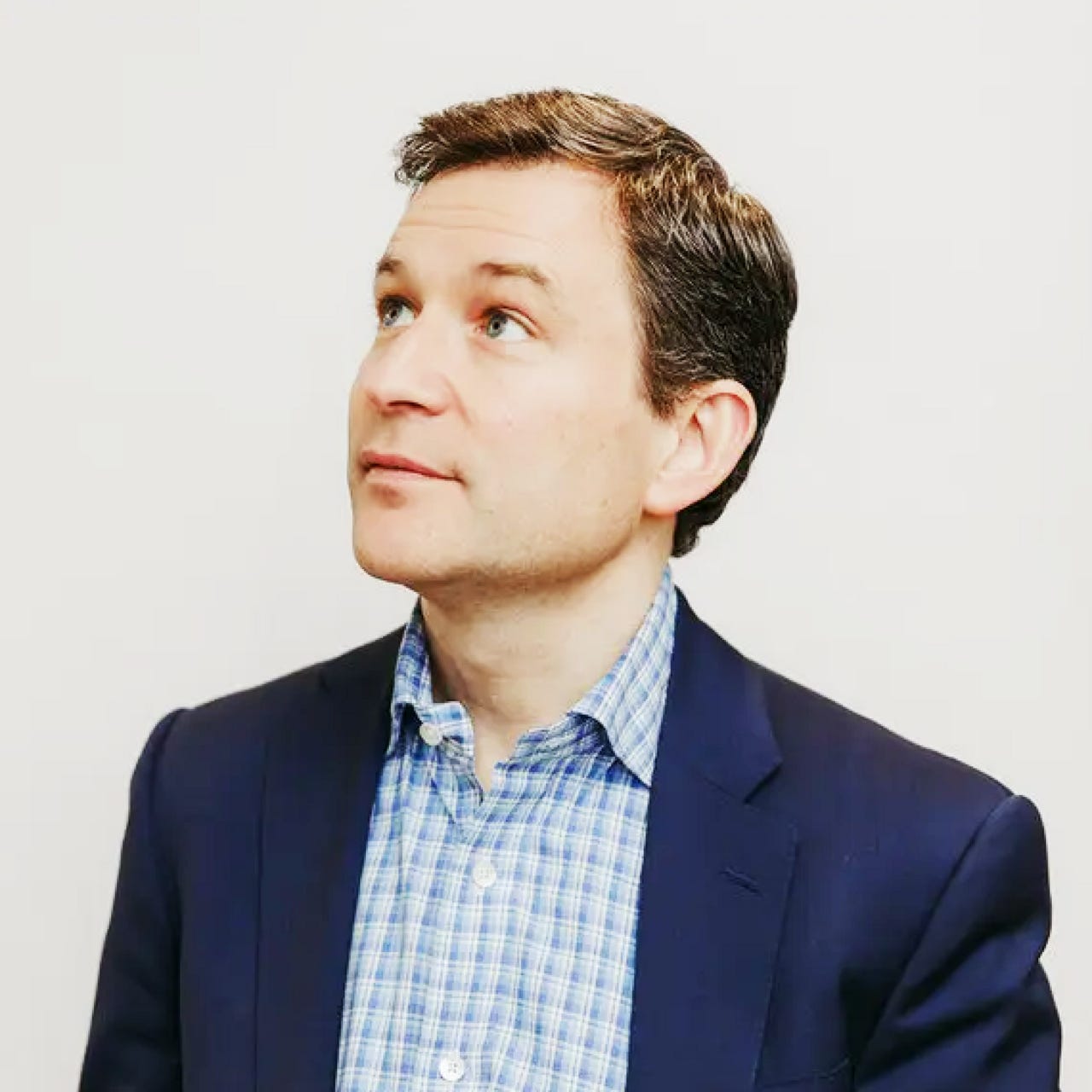Anyone can meditate - even you.
Day 1 of the New Year’s Meditation Challenge
I hear it all the time. People tell me: I get it, I know meditation is good for you—but I am uniquely incapable of doing it.
I promise, this is flat wrong. Anybody can meditate, even you. And I can prove it, if you do the five-minute meditation above.
The problem is that many people falsely believe that meditation requires a magical clearing of the mind. But getting distracted isn’t failing; it’s succeeding.
How can that be? I explain in the meditation.
Today is the first day of my free, 7-day New Year’s Meditation Challenge. It’s for both beginners and experienced practitioners.
We’ve designed the challenge to be maximally user-friendly. Every day, you’ll get a guided meditation in your inbox from some of my favorite teachers: Sebene Selassie, Jeff Warren, Sharon Salzberg, and Joseph Goldstein.
Don’t worry if you miss a day or two; flexibility is a key aspect of habit formation.
Another key aspect: what the psychologists call, “social support,” i.e. not doing it alone. Not only will I be doing the challenge right alongside you, but I’ll also be doing three live check-ins via the Substack app. The first is tomorrow at 7pm EST, and is open to everyone. If you want to submit questions, hit me up in the chat.
I’ll do two more live sessions after that (on Thursday and Sunday), but those are for paid subscribers only, so consider upgrading if you want to join.
Finally, do us both a solid by inviting your friends and family. That will give you extra social support—and also help me grow this little business.
Meanwhile, over on the 10% Happier podcast, we’re kicking off a big month of programming. Each week, we will tackle a popular New Year’s resolution, applying our signature mix of ancient wisdom and modern science.
This week, it’s physical fitness. Today’s episode is with the neuroscientist Wendy Suzuki, who talks about the brain benefits of exercise (and meditation!).
Click to listen to the full episode. She drops a ton of useful tips. Below, paid subscribers get a cheatsheet, which includes key takeaways, time-stamped highlights, and a full transcript.
Episode Cheatsheet
The big takeaway
Dr. Wendy Suzuki says exercise creates a "bubble bath of neurochemicals" that benefit the brain, improving cognitive function and protecting against age-related decline. She offers practical advice for starting and maintaining an exercise habit, as well as tools for reducing unhealthy anxiety and reframing anxiety as potentially beneficial.
Move your body, boost your brain: the neuroscience of exercise
Brain-boosting bubble bath: Every time you exercise, your brain is flooded with beneficial neurotransmitters and growth factors that enhance cognitive function and protect against aging.
Fluffy hippocampus, happy you: Regular aerobic exercise can grow new brain cells in the hippocampus, improving memory, imagination, and mood. Who knew your brain could be both fluffy and functional?
Anxiety's silver lining: While excessive anxiety is harmful, some anxiety can be reframed as protective and even lead to increased empathy and resilience.
Sleep on it (seriously): Proper sleep is crucial for brain health, acting like a "garbage truck" to clean out metabolic waste. No more all-nighters in the name of productivity!
Practical tips for a healthier brain
Start small: Begin with short, enjoyable workouts that fit into your existing routine.
Power walk your way to brain health: Even brisk walking can provide aerobic benefits - no fancy gym membership required.
Box breathing for calm: Practice the 4-4-4-4 "box breathing" technique to activate your parasympathetic nervous system and reduce anxiety.
Joy conditioning: Regularly recall and relive positive memories to counteract your brain's negativity bias.
Get out of your head: Practice generosity or share your unique skills with others to reduce anxiety.
Mindful eating: Focus on reducing sugar intake and adding more fruits and vegetables to your diet.
Exercise is the most transformative thing you can do for your brain today, but remember that sleep, meditation, healthy eating, and social connection are also crucial for long-term brain health.
Quotes to ponder:
"Every single time you move your body, there is a veritable waterfall of neurotransmitters and neurochemicals that floods your brain. This is the elixir that helps your brain perform today, grow tomorrow, and be protected long term from aging and neurodegenerative disease states."
"Your anxiety can help you. It can be a gift to you, even though it might be hard to appreciate that. And what I wanted to share was my favorite gift or superpower that comes with your anxiety, and that is the gift of empathy."
Episode timestamps:
00:00 - Introduction and overview of exercise benefits for the brain
03:28 - How exercise creates a "bubble bath of neurochemicals"
08:37 - Types of exercise and their brain benefits
17:43 - Importance of sleep for brain health
23:26 - Meditation and brain health
38:15 - Practical tips for starting an exercise habit
49:42 - Introduction to "Good Anxiety" concept
54:51 - Tools for reducing unhealthy anxiety
59:26 - Joy conditioning as an anxiety-reducing technique
1:05:10 - Anxiety as a source of empathy and strength




Thanks for this practice. I know I don’t suck at meditation, but I do suck at making practice a priority. Something to work on for’25.
The suggestion to say “welcome back” after getting distracted is going to shift things in a positive way. Sharon Salzberg was the first person I heard say that you *cannot* fail at meditation because everyone loses focus. That never stopped me from criticizing myself, of course. A simple way to extend myself a bit of grace in that moment is an awesome gift. Thanks, Dan!